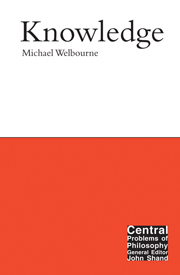6 - The concept of knowledge: a new theory
Summary
Preamble
If I am right, neither Hume nor Reid thinks that the default response to a bit of testimony is to weigh it in the way that one might weigh a bit of inductive evidence. That response is sometimes elicited by special circumstances; there may be reasons for doubting the speaker's sincerity, in any case there may be reasons for thinking that the events she reports may not be true, there may be conflicts of testimony, and so on. In such circumstances it will be appropriate for a hearer to engage her critical faculties in order to assess the evidential value of the testimony she has been faced with. But this is not the basic kind of response, the default. Neither Hume nor Reid attempts to work out the basic testimonial process; they simply take it for granted that we often come by information through testimony, but they do not ask how. This is the subject to which I now turn.
A good place to begin is to ask what, at bottom, testimony is for. My suggestion is this. Human beings, like other more or less intelligent locomotors, need true beliefs for the successful conduct of their lives. We need them, above all, in order to realize our desires and bring our projects to successful conclusions. All our actions have to be performed in the circumstances that we believe to obtain, and it matters that our beliefs be true, if the actions are to be successful.
- Type
- Chapter
- Information
- Knowledge , pp. 93 - 121Publisher: Acumen PublishingPrint publication year: 2001



